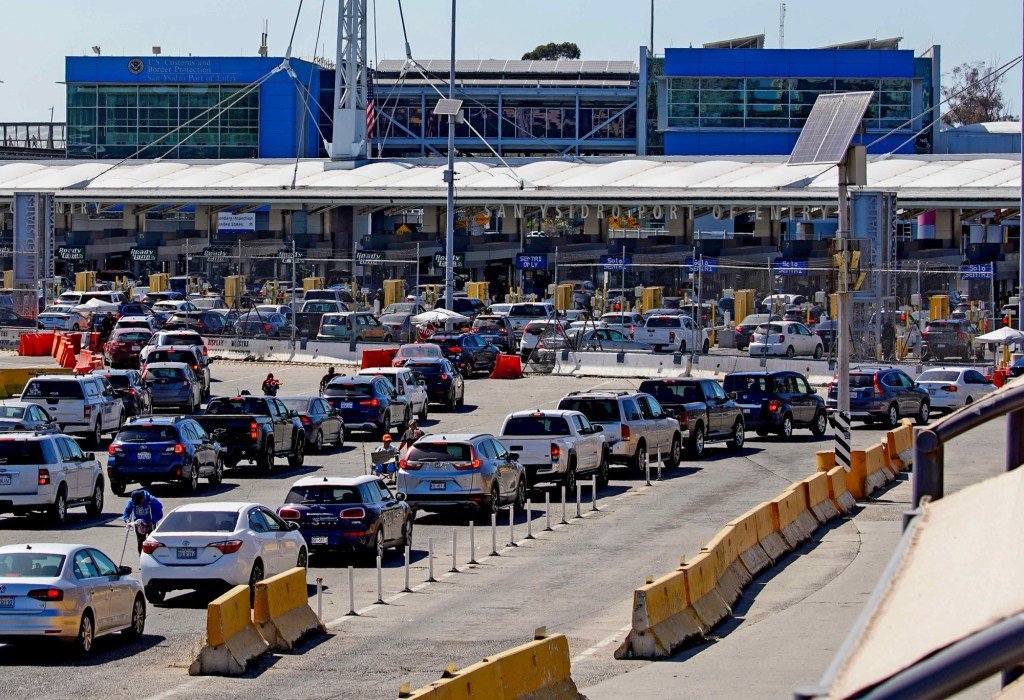As electric vehicle travel gains popularity, drivers are increasingly looking for more transportation options. Strengthening electric vehicle cross-border transportation infrastructure could be a crucial catalyst for revitalizing the industry. Many potential consumers are hesitant to adopt electric vehicles, especially due to concerns about the lack of charging infrastructure for international travel and long-distance domestic travel. Locally, here in San Diego, that problem is felt most acutely by those who make the 60-70 mile journey south of the San Diego border to visit some of Baja California’s most amazing locations. These locations, such as Rosarito and Puerto Nuevo, are popular with locals for family vacations and day trips alike, with cost-effective lobster dinners and great beachfront accommodations.
Electric vehicle infrastructure support is nearly nonexistent in Baja California, posing a significant challenge for San Diego residents, who have a higher rate of electric vehicle adoption than most states in the U.S. Now is a critical time to address this foreseeable issue before it hampers electric vehicle adoption or negatively impacts tourism in these areas. Without reliable charging options, the uncertainty of being able to charge up and get home could deter travelers.
Governments are allocating resources to strengthen charging infrastructure and promote the adoption of electric vehicles, including financial support for charging stations along major highways, incentives to promote electric vehicle sales, and collaboration with neighboring countries to build unified charging networks. For example, the first binational electric vehicle corridor was announced last year, stretching 872 miles from Kalamazoo, Michigan to Quebec City, Quebec. This corridor will have direct current (DC) fast chargers installed approximately every 50 miles. Once this cross-border alternative fuel corridor is established, drivers will be able to charge and refuel with confidence, and cross the border seamlessly.
Despite this progress, electric vehicle travel between the United States and Mexico remains challenged by disparities in charging infrastructure. Currently, the United States boasts a more developed electric vehicle charging network. Still, a coordinated effort is underway, with governments, private companies and international organizations working together to bolster electric vehicle charging infrastructure along popular travel routes and mitigate these challenges.
Another barrier is the diversity of charging plugs. Charging standards define the plug design and communication protocols so that all electric vehicles and chargers work together. But standards vary by region and manufacturer, making it difficult to find the right plug.
Both Europe and the United States use the Combined Charging System standard, but Europe primarily uses the Combined Charging System Combo 2 (CCS2) charging plug, while North America primarily uses the Combined Charging System Combo 1 (CCS1) charging plug. The United States also uses various fast charging standards, such as Tesla’s North American Charging Standard (NACS) and CHArge de MOve (CHAdeMO), which is primarily used by some Japanese car brands.
Comparing the United States to its border neighbors, similar potential mismatches arise for drivers moving between domestic regions. Mexico and parts of Latin America have multiple standards in place, including the aforementioned CCS1, CCS2, and NACS, as well as GBT, commonly used in China.
Currently, multiple standards are in use, widening the gap in charger availability between regions. Adopting a single global charging standard would be a big step towards solving this issue.
Inconsistencies in connector types can cause electric vehicle operators to worry that they will not be able to charge their vehicles when they need to, especially when traveling long distances or in unfamiliar locations. Addressing this issue by promoting standardization or developing universal adapters can therefore significantly reduce electric vehicle operator anxiety and facilitate seamless cross-border travel.
Cox is senior director of business development for XCharge North America and lives in Rancho Peñasquitos.

